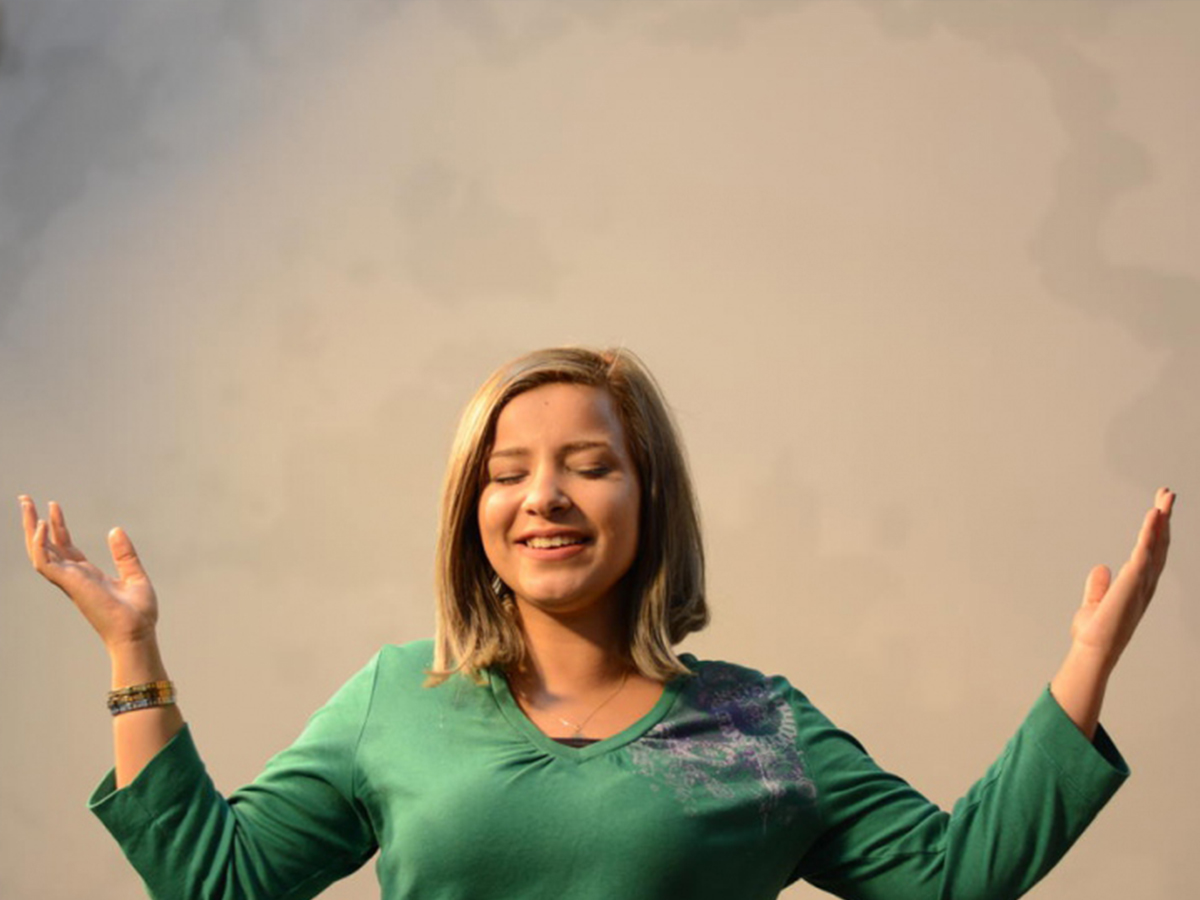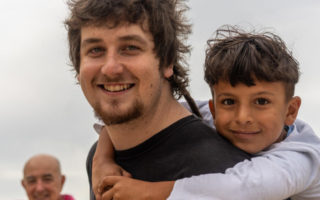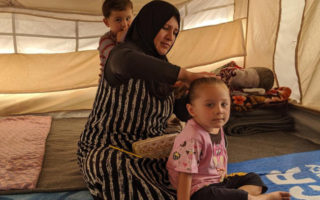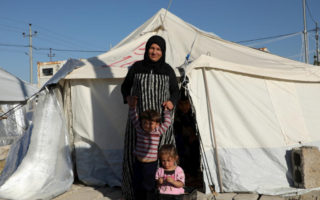
Syrian refugee Souzda rehearses in the studio in Beirut, Lebanon. © Jake Green
An American music producer has traveled to Lebanon to record an album with Syrian refugees, giving them a platform to share their feelings and experiences.
When Souzda fled the deadly shelling in Afrin in northern Syria, she thought she was leaving behind more than just her home. The 22-year-old was studying music and had hopes of one day becoming a singer, but the bombs that drove her to escape also threatened to lay waste to her dreams.
Arriving in Lebanon’s capital, Beirut, Souzda not only found safety but also ultimately the chance to rekindle her musical ambitions. Since early this year, she has been writing, composing and recording songs with American producer and singer Jay Denton, as part of an album he is producing in collaboration with refugees in Lebanon.
“Jay gave me hope,” Souzda says, smiling as she rehearses a song with him in Beirut. “Yes, there is war and I am outside my country, but there is hope for me to continue with music.”
“They don’t feel like they have a voice.”
Denton, a musician from Dallas, Texas, who studied international relations and has travelled the world, believes music has the power to connect people from all walks of life. Equipped with a mobile recording studio that he typically travels with, he came to Lebanon to make an album with refugees.
“When I sat down with them the first time, they said one of the hardest things about life here is that they don’t feel like they have a voice,” says Denton. “I’m coming to create art, so that hopefully it can be something where they feel like they have a voice that’s being heard by the rest of the world and a platform to channel their experiences.”
Denton is working with a group of more than 10 Syrians and an Iraqi refugee, composing and recording various songs.
Lebanon is currently host to around 920,000 registered refugees from the conflict in neighbouring Syria, as well as more than 14,000 refugees from Iraq.
“Some songs are more about just the overall feeling of what it’s like being far away from home,” he explains. “Some songs are about hope, and finding hope in the middle of hard times.”
Souzda has written and recorded a Kurdish-language song about her hometown, Afrin, where an escalation in fighting – notably in early 2018 – uprooted more than 150,000 people from their homes.
The song tackles themes of war and sorrow, but also of hope. “I wanted people, my people, when they heard us to feel that life has not ended, there is still hope and as long as you have a will you can produce something anywhere you go,” she explains.
“Music is… the language I can express myself in.”
As soon as he finishes recording the music with the refugees in Beirut, Denton will go back to Los Angeles, where he is now based, to finish the album in collaboration with a number of American artists. He plans to release the record early next year. He says he hopes to replicate the experience in other regions of the world currently witnessing displacement.
Souzda says music has kept her going through conflict and displacement. “Music is life, the language I can express myself in. I can express my pain, my joy, I can speak in music. It’s the closest language to people’s hearts.”
The final, evocative lyrics of her song express the longing and hope she feels for a brighter future for her homeland. “Tomorrow there will be no sorrow. Tomorrow there will be more hope. No matter how far it may seem, we will definitely see peace.”
Originally published on UNHCR on 6 December 2019





